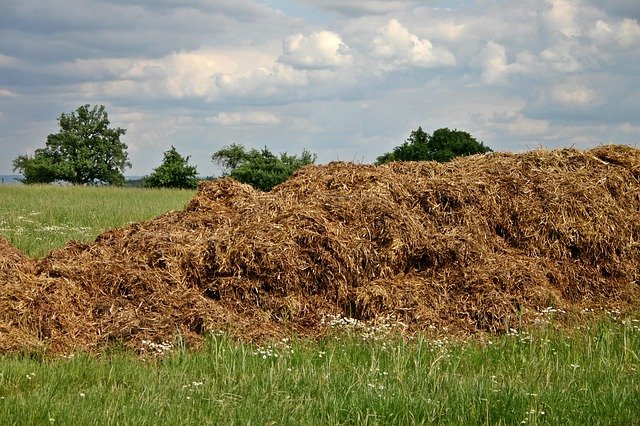
Factors Influence the Rate of Organic Matter Decomposition in the Soil
Healthy soil is living soil, teeming with living things from microscopic bacteria to earthworms. These garden residents play an important role in breaking down materials in the soil, releasing nutrients that your plants need to grow, as well as improving the structure of the soil to allow water and oxygen to nourish plant roots. Organic matter in the soil feeds these critters and is essential for healthy garden soil. Understanding how organic matter breaks down helps you better meet your garden’s soil needs.
Biological Activity
The most obvious cause of the breakdown of soil organic matter is a high level of biological activity: A large number of bacteria, fungi, and larger organisms feeding on the organic material in your soil for food. A biologically active soil is a healthy soil, so as you improve the soil in your garden, you should expect a faster decomposition of organic matter. Anything that affects the microbes and other living organisms in your soil, as a result, will affect the rate of organic matter break down.
Oxygen Level
Like all living organisms, the creatures in your soil need oxygen to live. Oxygen comes from the air above the soil, so there must be a means for air to penetrate into the soil. Soil with a loose structure allows for ample spaces between soil particles for oxygen to collect. In such soils, organic matter will decompose faster. Compacted or “tight” soils — such as soils with a high clay content — do not provide adequate space for air to collect, causing less biological activity and a slower organic matter break down.
Moisture Level
The amount of water in the soil, both indirectly and directly, affects the decomposition rate of organic matter. Indirectly, a wet soil results in a slower break down because water fills the air spaces in the soil, depriving the microbes of oxygen. But all living organisms also require water, so a soil that is too dry directly decreases organic matter decomposition, as the microorganisms found in soil cannot survive without water. Soils that undergo period wet and dry periods — like a garden that you water weekly — instead of remaining constantly wet or dry, will cause organic matter to decompose more quickly.
Soil pH
The pH of your soil tells you how acidic or alkaline soil conditions are. A low pH indicates an acidic soil, and this can have a major impact on the decomposition of organic matter. Bacteria — the organisms most responsible for breaking down organic matter — experience a sharp drop-off in activity once the pH drops below 6.0.
Temperature
At temperatures of 40 degrees Fahrenheit and above, soil bacteria experience some activity. But once temperatures reach 70 F, soil microbes really get going, up to about 100 F. Microbial populations double in the soil with every additional 10 F. Because of this, soil organic matter breaks down faster in the summer, and areas with year-round warm weather will decompose more organic matter annually than areas that experience cold winters.
You can read more articles about Soil Science
Useful Agricultural Websites